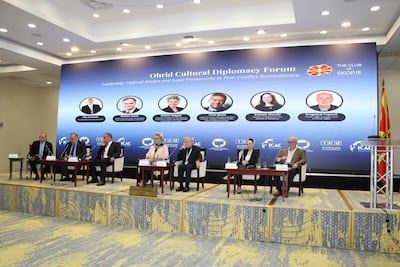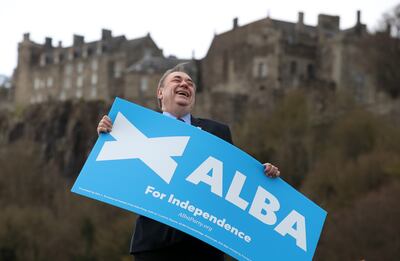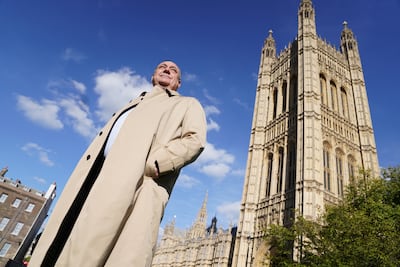Former Scotland first minister and Alba Party leader Alex Salmond has died, aged 69.
The former MP and MSP, who led Scotland between 2007 and 2014, became ill while giving a speech in North Macedonia.
Senior political figures in London and Edinburgh have paid tribute.
Mr Salmond led the independence campaign and resigned as first minister when the referendum vote in 2014 was lost.
UK Prime Minister Keir Starmer led the tributes, calling him a “monumental figure of Scottish and UK politics” who “leaves behind a lasting legacy”.
“As first minister of Scotland, he cared deeply about Scotland's heritage, history and culture, as well as the communities he represented as MP and MSP over many years of service,” Mr Starmer said.

UK Conservative leader Rishi Sunak posted on X: “Alex Salmond was a huge figure in our politics. While I disagreed with him on the constitutional question, there was no denying his skill in debate or his passion for politics. May he rest in peace.”
First Minister John Swinney said he was “deeply shocked and saddened at the untimely death”.
“Over many years, Alex made an enormous contribution to political life, not just within Scotland, but across the UK and beyond,” he said. “He took the Scottish National Party [SNP] from the fringes of Scottish politics into government and led Scotland so close to becoming an independent country.”
Despite not being in power, Mr Salmond stayed in Scottish politics. In September, he called for a ceasefire in Gaza. He said: “It is paramount that the international community unite to secure a ceasefire. We have to stop the killing now or face the danger of escalation.”
He will forever be linked to the 2014 campaign for an independent Scotland and, staying loyal to the cause, he joined the pro-independence Alba Party in 2021 as leader.

He was born in Linlithgow in 1954 and educated at Linlithgow Academy and St Andrews University, where he joined the SNP, and graduated with a degree in economics and history,
He was first elected as an MP to Westminster for the Banff and Buchan constituency in 1987.
With the reopening of the Scottish Parliament in 1999, he went on to serve as leader of the opposition in Holyrood, while retaining his seat at Westminster.
He guided his party to a narrow Scottish election win in 2007, then led a minority government as he became Scotland's first SNP first minister.

That success was superseded in the 2011 election, when Mr Salmond led his party to an unprecedented victory, with a heavy defeat of its main rival and pre-election poll leaders, Labour.
In turn, that meant the SNP could hold an independence referendum.
As the vote on September 18, 2014 drew closer, the polls narrowed and 'Yes Scotland' appeared to have gained enough momentum. Many wondered whether the first minister could become the ultimate Scottish political history-maker.
But the result – a 55 per cent-45 per cent vote to stay in the UK – led to his resignation as first minister on September 19.
He said that, having taken the independence cause to “base camp”, it was someone else's turn to try to reach the summit. The SNP has been in government for the past 17 years.
As recently as last month, Mr Salmond said he regretted his decision to step down the day after the referendum vote, describing it as a mistake.
He married his partner, Moira, in 1981. He was a keen golfer and a fan of horse racing.













